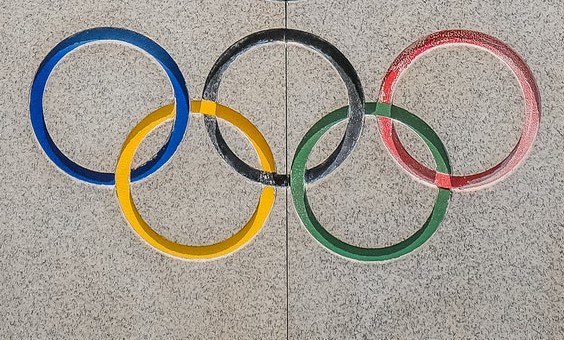Medical experts said that the Tokyo Summer Olympic Games scheduled for next July will be a risky event, which requires flexibility on the part of its organizers in light of the ambiguity surrounding the Coronavirus, especially if no vaccine is available for the virus by the time of the major sporting event.
Last month, Japan and the International Olympic Committee took an unprecedented decision to postpone the session for a year as the highly contagious virus crisis, which has infected nearly 2.3 million people worldwide, has killed more than 150,000 so far.
But questions are raised about the possibility of organizing the session 15 months from now, while the most optimistic estimates indicate that no vaccine is expected for the virus less than a year ago.
When we talk about the return of sporting events in stadiums full of audiences, I think we have to wait until a vaccine appears so that we can do this, said Zach Benny, an epidemiologist at Emory University in the United States.
The deferred summer session is scheduled to take place in the Japanese capital between July 23 and August 8 next year, but organizers expect few changes to the original plan for the event, including the presence of enthusiastic fans.
But Bennie, an expert on sports health, told Reuters that this assumption may be too optimistic.
The expert added: Every person you add to any gathering carries additional risks.
Therefore, when there are 50 thousand, 60 thousand, or 100 thousand (encouraging) ... this is a huge risk that should not be taken without a vaccine.
Beni expects the vaccine to appear a year or a year and a half after the outbreak began, that is, in late 2021.
The expert added that the games were a risky event because of the threat posed by the public coming from areas with many infections and then the risks of returning to their home countries as they could be carriers of the infection as well.
Although Jason Kendrachuk, an infectious disease expert at the University of Manitoba, Canada, is more optimistic about the emergence of the vaccine within a year, he spoke about a possible new delay of the course, saying that vaccinating the public takes time.
People should not be vaccinated directly with the start of the Olympics, but rather it must be done sometime before these people develop the immunity that protects them, added Kendrachuk, who previously worked during the Ebola and SARS outbreak.
In a video interview with the Foreign Correspondents' Club in Japan, Dr. Kentaro Iwata, a virologist, said he was not optimistic about the new date for the Olympics, adding: I do not think it will be possible to hold the Olympics next year ... if it was originally held.
Japan may be able to control the disease by next summer, and I hope we will succeed in doing so, but I do not expect the same thing to happen everywhere around the world, said Iwata, a professor at the University of Kobe.
Iwata has attracted international attention because of his criticism of the Japanese government when it placed thousands of passengers in quarantine on the cruise ship Diamond Princess in February. Iwata visited the ship at this time.
Focus on organization and hosting
In response to the above, the local organizing committee for the Summer Games says it is totally focused on organizing and hosting the event next year.
Our mission is to prepare for the organization of the course next summer. We do not see any need to answer questions about speculation, committee spokesman Masa Takaya said in an email to Reuters on Monday.
Kendrachuk believes that, even if they are flexible and well prepared, the organizers will be able to hold the course even if no vaccine appears for the virus.
He said about it: The matter needs some creative thinking and perhaps some desire on the part of the public to participate in watching the event ... with the understanding that it will simply not be the way we used to.
Benny says the safer option for athletes is to arrive in Tokyo between four and six weeks before the tournament begins and follow strict two-week isolation procedures before heading to the Olympic Village to train in preparation for the remainder of the competition.
My goal is for the Olympic Village to be a health buffer zone free of the virus, said Benny.

Post a Comment